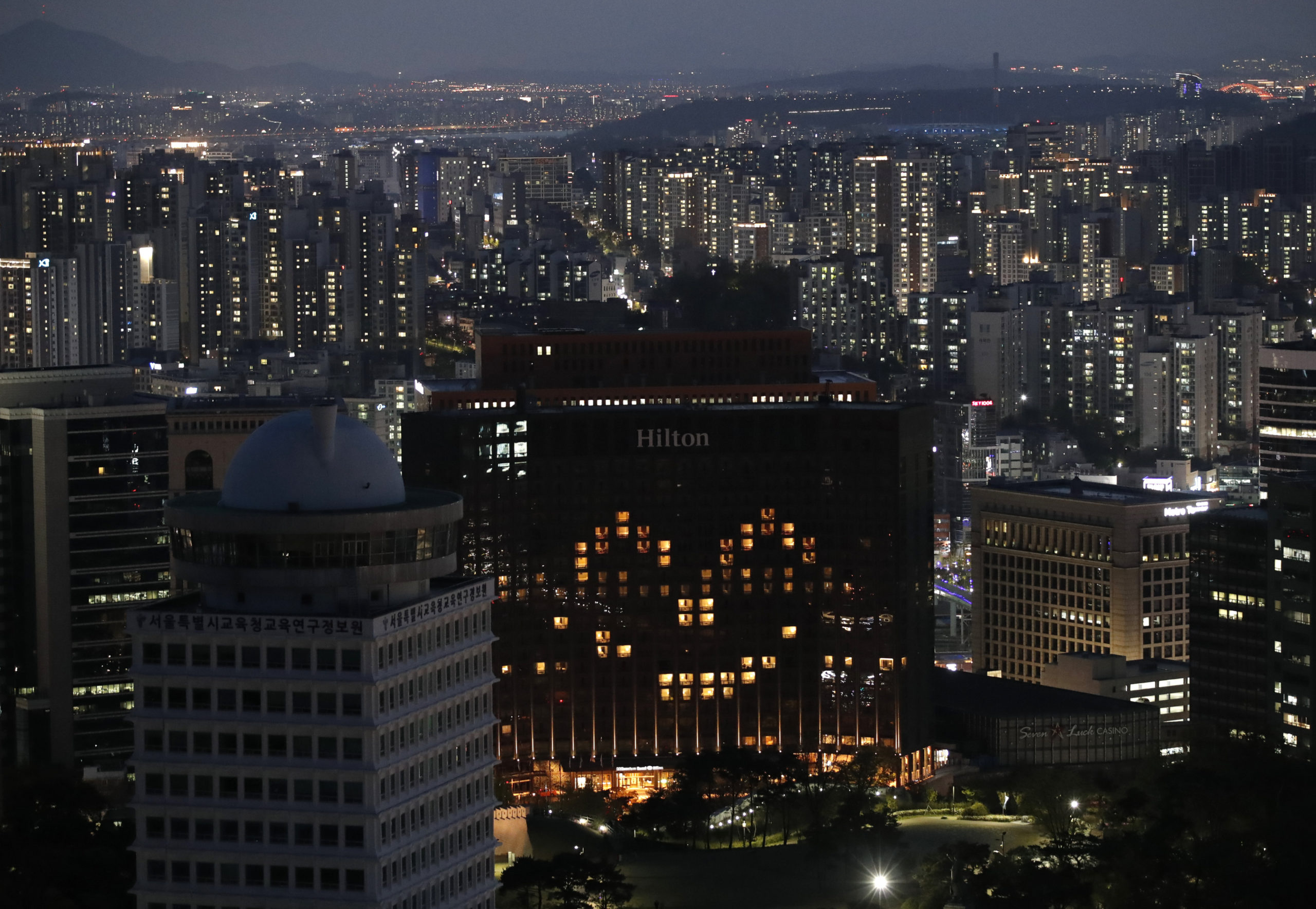
Lighted rooms at the Millennium Hilton hotel show in the shape of a smiley face to send messages of hope to the people amid the coronavirus outbreak in Seoul, South Korea, Sunday, April 26, 2020. In the Philippines, the Department of Tourism is encouraging hotels to give low rates to OFWs, guests amid the different levels of community quarantine in the country. |AP Photo/Lee Jin-man
CEBU CITY, Philippines — Albeit the losses incurred by the tourism industry due to the coronavirus pandemic, the Department of Tourism (DOT) has called on accommodation establishments not to take advantage of repatriated workers or exempted employees who will need accommodation while the different levels of community quarantine are in effect nationwide.
In its Administrative Order No. 2020-02 issued May 22, 2020, the DOT has urged the establishments to provide the lowest rates to their guests, who are mostly repatriated OFWs, frontline workers, and employees of exempted businesses who are billeted within community quarantine zones.
“Those reported to be engaging in opportunistic pricing may be subject to the relevant penalties under applicable laws, rules, and regulations,” the DOT warned.
The administrative order signed by Secretary Bernadette Romulo-Puyat also sets the guidelines for the operation of these establishments while their locations are under a community quarantine.
For areas under enhanced community quarantine, modified ECQ and general community quarantine, the DOT limits the guests that the establishments may accommodate to those who had existing bookings, transiting foreign guests, long term guests, distressed OFWs, repatriated OFWs, non-OFWs who may be required to undergo mandatory facility-based quarantine, stranded passengers, employees of government agencies, health care workers and employees of exempted business establishments who may have been in-housed because of the movement restrictions.
The administrative order directs hotels in places under ECQ, MECQ, and GCQ to observe the single occupancy or one person per room condition for OFW or health workers guests.
Double occupancy may be observed for other guests provided that the beds should be at least two meters apart with a divider placed in between. The guests in double occupancy rooms shall also observe bathroom schedules and must disinfect every after use.
“When in the Accommodation Establishment, guests shall be confined to their rooms. Mingling with occupants of other rooms shall not be allowed,” the DOT order said.
Accommodating persons, who are on leisure travel, is not allowed for hotels in areas under the three levels of community quarantine.
For areas under modified General Community Quarantine, the accommodation establishments may return to normal operations and accommodate bookings of all guests, regardless of whether the stay is for work or leisure, as long as the occupancy is only up to 50 percent of their operational capacity.
The protocols for hotels in MGCQ areas no longer include the single occupancy room conditions for their guests.
READ: Tourism industry pegs P25B loss due to COVID-19
While leisure travel has been restrained due to COVID-19, the tourism industry is among those most badly-hit by the effects of the pandemic.
Central Visayas, which is a known tourism hub in the country, has already pegged the industry’s foregone revenue due to COVID-19 at about P25 billion.
READ: Employment lay off possible as tourism industry in Cebu suffers due to coronavirus scare
Prior to the “lockdowns” in the middle of March, several accommodation facilities already cried losses due to the low occupancy rates in their establishments./dbs
